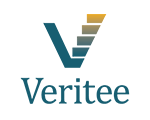Burnout has been called the Erosion of the Soul. I see it every day in the physicians, dentists, and veterinarians that I coach. The demands, inefficiency, regulations, insurance industry, and focus on budgets drive these valuable professionals to sacrifice their health for their job, calling, and income.
Mayo Clinic’s definition of Burnout: “Clinically defined as a state of physical, emotional or mental exhaustion combined with doubts about your competence and the value of your work.”
It is paramount to realize that burnout is an occupational hazard with systemic and environmental issues driving the pressure. The demand seems to always be greater in these care giving roles. There are systemic issues driving the increase in burnout. It is not a lack of resilience. Doctors in all professions, are the most resilient people I know.
While there are the Maslach researched symptoms of Burnout, I see so many other signs and symptoms. My passion is to help professionals identify burnout in themselves earlier, know the warning signs, and seek assistance sooner. Professionals often wait for things to get better and then suffer dire consequences of developing severe depression and anxiety, revoking their license, or losing their life.
Kristina Maslach was one of the first researchers on Burnout.
She identified Burnout as a long-term stress reaction characterized by:
1. Depersonalization
▪ cynical or negative attitudes toward patients
▪ lack of empathy
2. Emotional exhaustion
3. Feeling decreased personal achievement
Burnout is being called the largest public health crisis and has its own ICD-11 code. So how do we identify symptoms sooner?
How do we make it ok to reach out for help at the first sign of distress, not when we have tried to gut it out and suffer through months, even years of hopelessness?
These are the signs of stress and overwhelm that I see in my clients:
▪ Irritability, impatience
▪ Erosion of self-worth
▪ Indecisive and lack of focus
▪ Disrupted sleep, changes in weight
▪ Exhausted but still driven
▪ Wanting help but not asking for it
▪ Cannot disconnect from work, not present at home
▪ Working harder and not getting better
▪ Unrealistic expectations of self and others
▪ Escaping to drugs, porn, gambling, food, alcohol, social media
▪ Juggling leaderships, entrepreneurship, clinical, and personal responsibilities
One physician that I worked with said that he knew he was overwhelmed for months but unsure who to ask for help. He was referred to me after an outburst due to a reminder that his mandatory safety modules were overdue. He just couldn’t handle one more thing in that moment.
I work with health systems of all kinds regarding wellbeing programs, systemic changes, and retention. I’m excited to be teaming up with Bank Midwest to offer wellbeing information.
Questions:
Is your pace sustainable?
Do you get caught in the perfectionism trap and fear of asking for help because you are the one that is supposed to help and fix everyone else?
What is one thing that you can start doing and one thing to stop doing to help your wellbeing?
Resource:
We need to first identify the areas of our lives that need the most attention. Awareness is the first step toward changing our behaviors to make things better.
Here is a link to the U Matter Self-Assessment from Princeton University. This tool has you answer seven wellness dimensions, use the guide to interpret the scores, and complete a take action plan. Bank Midwest knows that being a busy professional requires wellbeing in all aspects of life, not just financial wellbeing.
Veritee means truth. Please reach out to me if I can help you with building your truth strategy. With my twenty-eight-year career focused on emotional wellbeing, I started Veritee to help busy physicians, dentists, veterinarians, chiropractors and executives to create sustainable and fulfilling careers while keeping their truth, health and family a priority. I am a licensed professional counselor and certified as an executive, life and spirituality coach.
If you would like to explore the effects of burnout in your life and to implement wellbeing strategies for career sustainability, feel free to book a thirty-minute free call to discuss your individual challenges and goals. [email protected]








